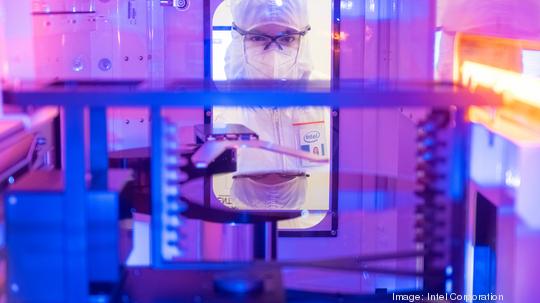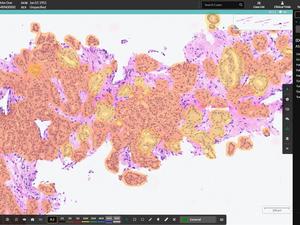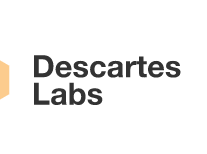
President Joe Biden signed the CHIPS and Science Act on Tuesday, cementing historic investment into domestic semiconductor manufacturing.
The legislation is backed by industry including Intel Corp., which employs just over 1,900 people at its Rio Rancho campus.
“We are thrilled to see funding for the CHIPS Act enacted into law. Intel is committed to restoring end-to-end leadership, innovation and manufacturing here in the U.S.,” said Intel CEO Pat Gelsinger in a written statement. Gelsinger was on hand for the signing. “We are doing our part and the federal government has now done their part.”
The act includes $52.7 billion in subsidies for manufacturing, workforce development and R&D for semiconductor companies. Here’s how that breaks down:
- $39 billion for manufacturing incentives, including $2 billion for legacy technology used in automobiles and defense systems.
- $13.2 billion in R&D and workforce development
- $500 million for international communication technology security and supply chain work
There is also a 25% investment tax credit for capital expenses for manufacturing. It also stipulates funds can’t be used for investment in facilities in China or for stock buybacks and dividends.
The industry has argued that incentives are needed to compete with China, which has for years invested in its own semiconductor industry.
“America invented the semiconductor ... and this law brings it back home. It’s in our economic interest, it’s in our national security interest to do so,” Biden said in remarks before the signing.
Intel has announced an aggressive investment strategy in its domestic manufacturing since Gelsinger took over as CEO in February 2021. The company has been counting on these incentives to expand its Arizona footprint with its new foundry business as well as build a new campus in Ohio. Each of those projects is pegged at $20 billion.
The Ohio project could go much bigger as incentives are rolled out. The company has already completed a more than $3 billion expansion of its Ronler Acres campus in Hillsboro.
Gelsinger told industry analysts this is the kind of industrial policy investment that hasn’t been seen since World War II.
Intel and the rest of the semiconductor industry have been lobbying hard for incentives. It has also become a matter of national security brought up by both Gelsinger and members of Congress. Over the last 30 years, chip production has shifted to Asia, where countries are investing in the industry.
Gelsinger frequently notes that in the last 30 years the percentage of chips made in the U.S. has shrunk from 37% to 12%.
In a blog post Intel Vice President of U.S. Government Relations Al Thompson noted the work of this legislation now shifts to the Departments of Commerce, Defense and State to craft the details and how it will work.
“That’s where the rubber meets the road. We appreciate the great support from President Biden, Sens. Schumer and Cornyn, Reps. McCaul and Matsui, and our delegations in Oregon, New Mexico, Arizona and Ohio,” Thompson wrote.









